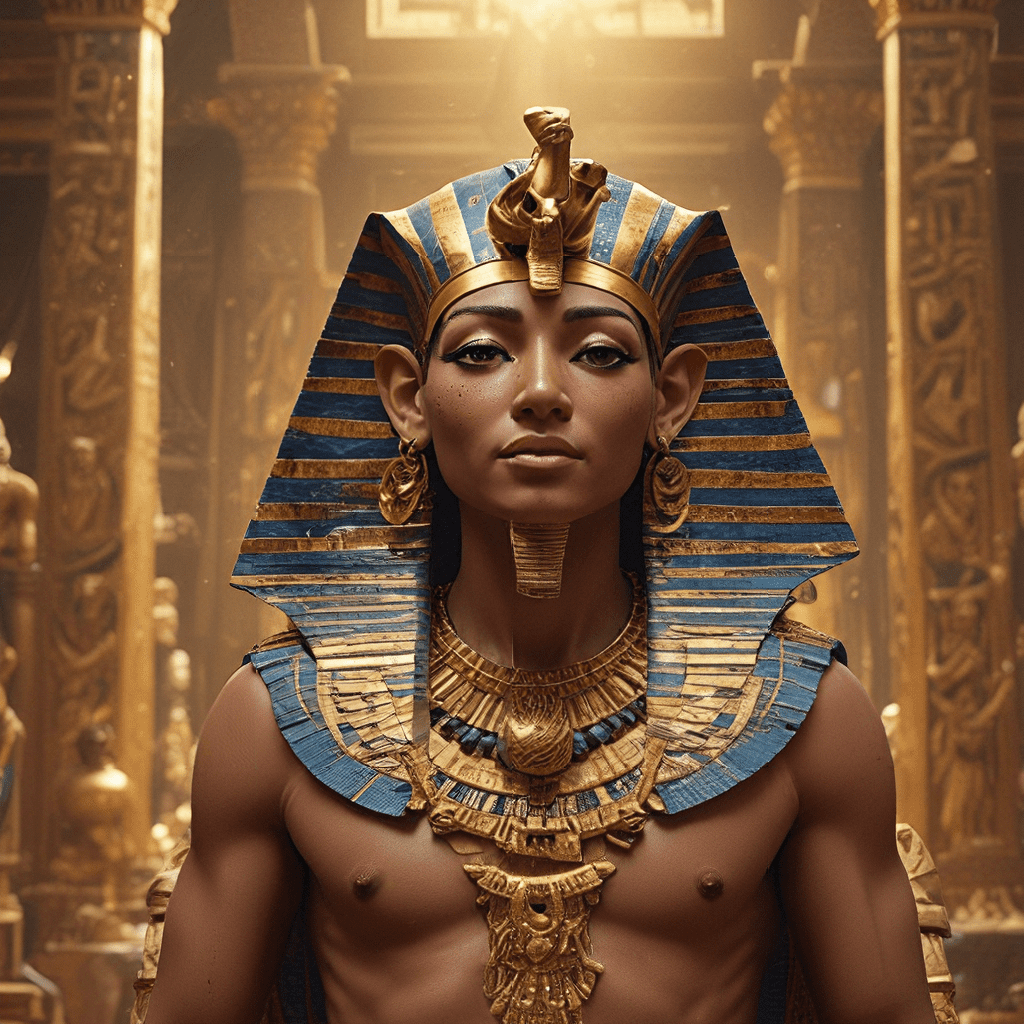The Importance of Royal Festivals in Ancient Egypt
Ancient Egypt was a land of powerful pharaohs and magnificent rituals. One of the most significant aspects of Egyptian life was the celebration of royal festivals. These festivals weren’t just about parties and feasts, they were vital to the very fabric of Egyptian society. They reaffirmed the pharaoh’s divine right to rule, celebrated the strength and power of the Egyptian gods, and brought the entire kingdom together.
These festivals were not just for the elite; they were for everyone. People from all walks of life would come together to celebrate, offering prayers and gifts to the gods and the pharaoh. The festivals served as a reminder of the importance of unity, loyalty, and the power of the divine in Egyptian life.
Celebrating the Pharaoh’s Divine Right to Rule
The ancient Egyptians believed their pharaohs were divine rulers, chosen by the gods to lead them. The elaborate rituals and ceremonies of royal festivals served as a powerful reminder of this divine connection. By participating in these celebrations, the people acknowledged the pharaoh’s authority and the importance of their role in maintaining the cosmic order.
The pharaoh was seen as the embodiment of Horus, the powerful god of kingship. Festivals like the Sed and Heb Sed were designed to reaffirm the pharaoh’s strength and vitality, showcasing him as a divine being worthy of leading the kingdom.
The Sed Festival: Renewing the Pharaoh’s Power
The Sed Festival was a major celebration held to mark the pharaoh’s 30th year of rule and then every three years after that. This festival was a grand spectacle that served to symbolically renew the pharaoh’s power and legitimacy. It was a time for the pharaoh to demonstrate his strength, endurance, and connection to the gods.
The Sed Festival featured a series of rituals, including a procession where the pharaoh ran a symbolic course, demonstrating his vitality. The pharaoh would also receive offerings and perform rituals that ensured a prosperous future for Egypt. This festival was a vital celebration of the pharaoh’s continued reign and the strength of the Egyptian kingdom.
The Heb Sed Festival: A Symbolic Rejuvenation
Similar to the Sed Festival, the Heb Sed Festival was another significant celebration of the pharaoh’s reign. Held after a pharaoh had ruled for a considerable period, usually after 30 years, this festival symbolized the pharaoh’s rejuvenation and continued ability to rule.
During the Heb Sed Festival, the pharaoh would participate in a series of rituals that represented his rebirth and renewal. This festival celebrated the connection between the pharaoh and the god Osiris, the god of the underworld and rebirth. It allowed the pharaoh to symbolically shed the burdens of his long reign and embrace a new phase of leadership, guaranteeing a long and prosperous reign for the pharaoh.
The Opet Festival: A Journey of Divine Power
The Opet Festival was a grand celebration that honored Amun-Re, the king of the gods, and his consort Mut. This festival was a time for the pharaoh to demonstrate his connection to the divine and his role as a mediator between the gods and the people.
During the Opet Festival, the pharaoh would lead a procession from the temple of Karnak to the temple of Luxor, carrying the sacred barge of Amun-Re. This journey symbolized Amun-Re’s journey to the underworld and his resurrection, and it reflected the pharaoh’s own divine power and authority.
The Beautiful Festival: Celebrating the Pharaoh’s Strength and Beauty
The Beautiful Festival, also known as the Festival of the Beautiful House, was a celebration of the pharaoh’s strength and beauty, showcasing the pharaoh as a symbol of the power and glory of Egypt. It was a time for great feasts, dancing, and music.
During this festival, the pharaoh would wear his most elaborate jewelry and clothing, highlighting his regal appearance. The celebration involved processions, athletic competitions, and ceremonies that reinforced the pharaoh’s role as a powerful and revered leader.
The Festival of the Valley: Honoring the Pharaoh’s Ancestors
The Festival of the Valley, celebrated in the Valley of the Kings, was a time to honor the pharaoh’s ancestors and their legacy. It was a way of connecting the pharaoh to the past and recognizing the importance of lineage in Egyptian society.
During this festival, the pharaoh would visit the tombs of his ancestors and make offerings. The festival was a reminder of the pharaoh’s responsibilities to his family, his predecessors, and the future generations of Egypt.
The Festival of Min: Celebrating Fertility and Strength
The Festival of Min, named after the god of fertility and strength, was a time for celebration, harvest festivals, and joyful processions. It was a time to honor the god Min and his power to bring life and growth to the land.
During the festival, people would engage in rituals and processions that reflected Min’s power, particularly those related to fertility and abundance. This festival was a celebration of the bountiful harvest and the importance of agriculture in Egyptian life.
The Festival of Thoth: Celebrating Knowledge and Wisdom
The Festival of Thoth was a celebration of the god of knowledge, wisdom, and writing, Thoth. This festival was a time for learning, scholarship, and the advancement of knowledge.
During the festival, priests would hold ceremonies dedicated to Thoth, and scholars would share their knowledge and wisdom. This festival honored the power of learning and the importance of intellectual pursuits in Egyptian society.
The Role of Temples and Priests in Royal Festivals
The temples and priests were essential to the celebration of royal festivals. Temples served as the focal points for many festivals, offering a space for ceremonies, processions, and rituals. The priests, trained in the rituals and traditions of the gods, played a vital role in organizing and conducting these events.
The priests were responsible for preparing the offerings, reciting the proper prayers, and ensuring that the rituals were performed correctly. Their knowledge and expertise helped maintain the integrity of the festivals and their connection to the divine.




